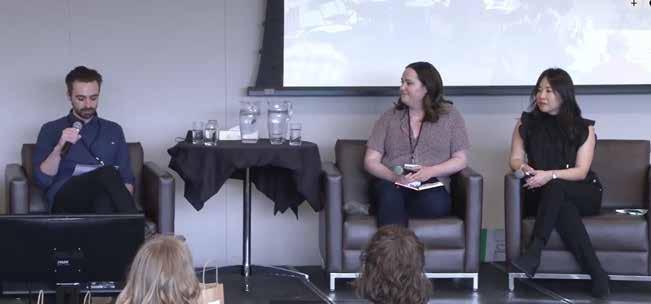
1 minute read
The role of arts organizations/funders/agencies
Watch the panel discussion.
Eunju also shared some of the work that the London Arts Council has been doing around the issue of diversity, equity and inclusion, including their efforts to reach out to arts organizations that directly work with marginalized communities – rather than expecting those organizations to apply for funding.
Advertisement
Ayla agrees, and believes that outreach and having conversations with marginalized communities within the arts sector is important.
“This helps us learn about the barriers that exist within the granting structure and how one applies for grants,” she said. “I think all funders need to learn how to open those doors and limit the barriers. There’s definitely a hierarchy when it comes to funders – but we need to be approachable so that we can meet the goals of both the funders and applicants.”
Speakers: Clayton Smith (NaAC), Ayla Stephens (Rozsa Foundation), Eunju Yi (London Arts Council)
A common theme heard throughout BEGINNING: A National Conversation was the need for more funders and granting agencies to come to the table and support the aspirations of artists living with developmental disabilities. Ayla Stephens from Calgary-based Rozsa Foundation (and a funder of the gathering) was joined by Eunju Yi, Executive Director of the London Arts Council.
Eunju acknowledged that there is always a need to innovate in their approach for funding artists and arts organizations.
“It is always important for funders to identify barriers and tackle those barriers for the benefit of the arts community,” she said. “That is something that we are always keeping in mind when launching different programs.” Going even further, Ayla believes that funders need to understand that not all applicants are 100% confident in putting their foot forward in applying for a grant. “What can we do to make you feel more confident? And how can we meet you at your best?” These are some of the questions that she hopes funders can begin to ask applicants.








